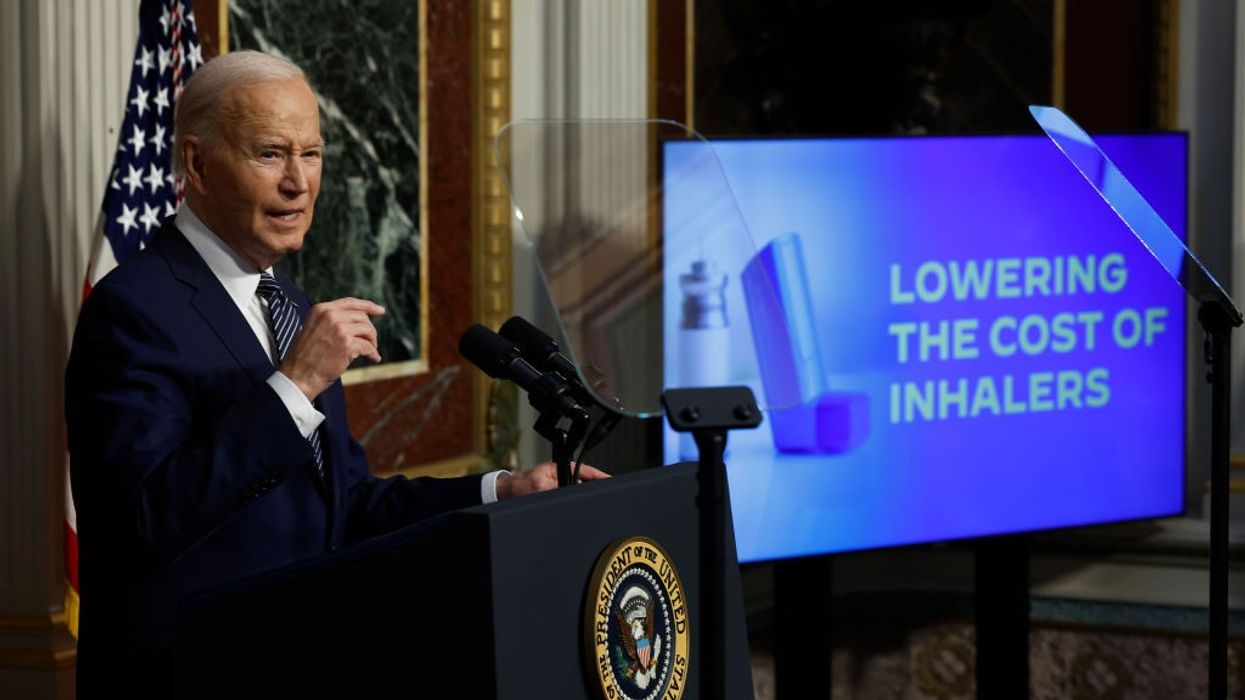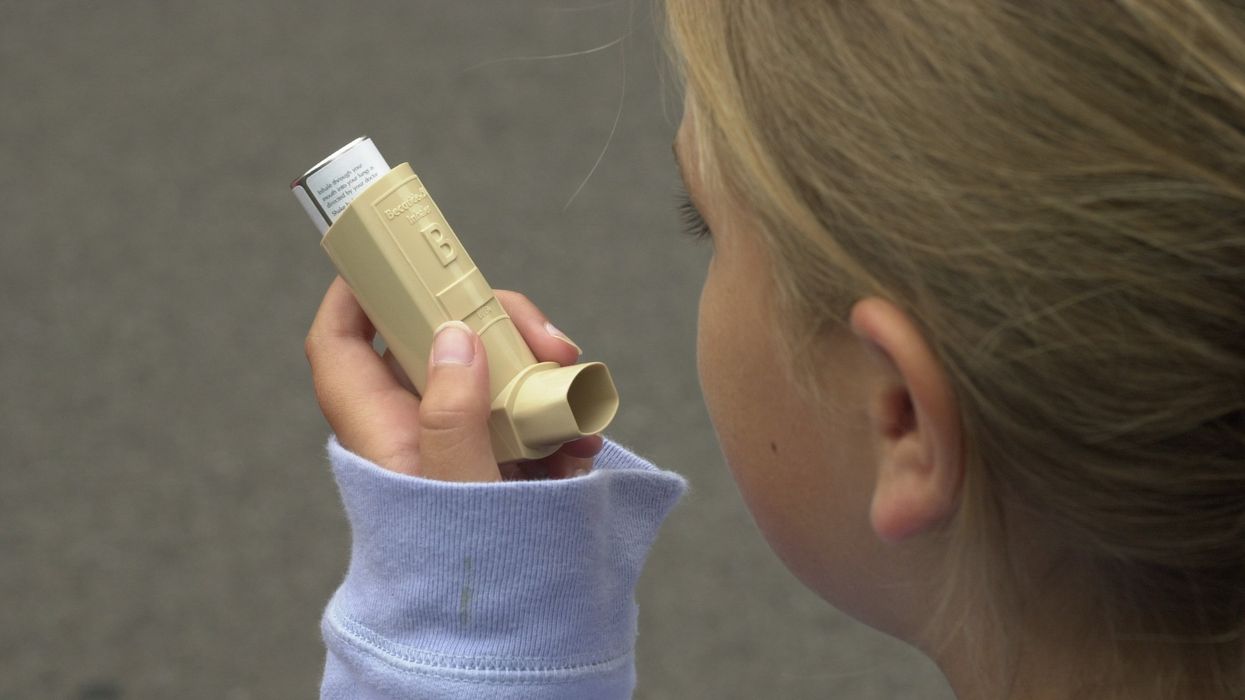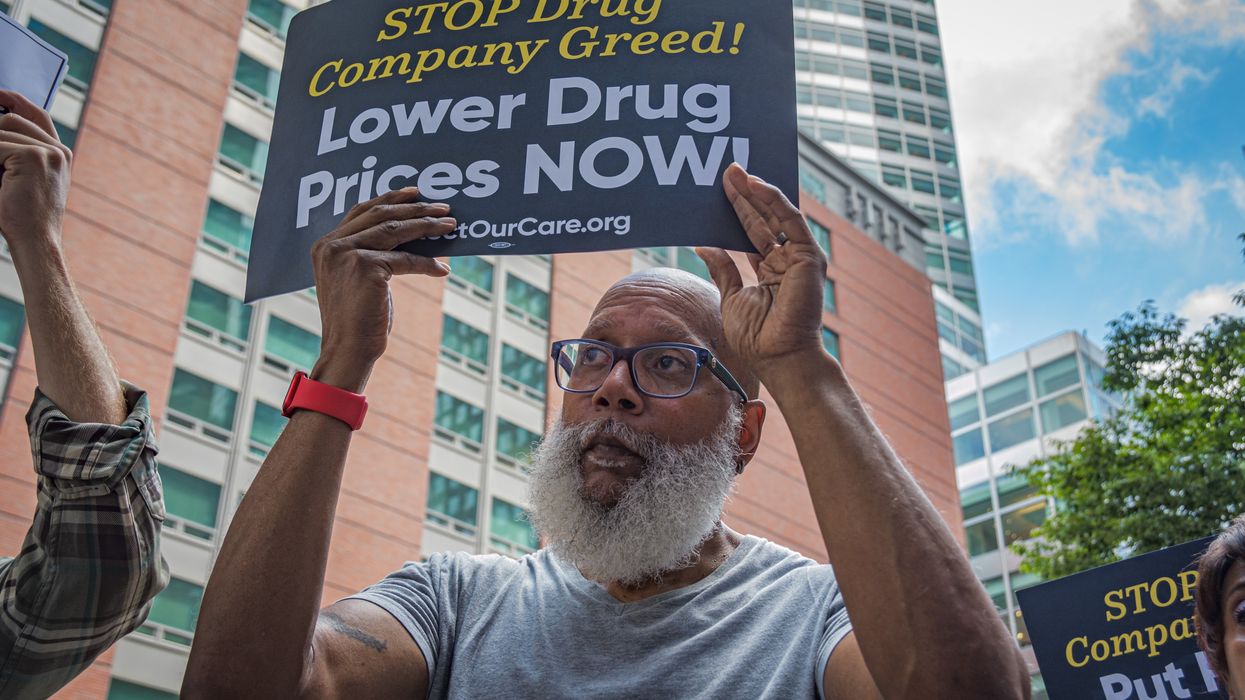Sanders Praises $35 Cap on Inhalers Just Six Months After Probe Into 'Outrageous' Prices
"Americans who have asthma and COPD should not be forced to pay, in many cases, 10 to 70 times more for the same exact inhalers as patients in Europe and other parts of the world," said the independent senator from Vermont.
Less than six months after launching a probe in the U.S. Senate into "the outrageously high prices" that asthma patients and others across the country pay for inhalers, Sen. Bernie Sanders celebrated the official start of a new program by one of the largest makers in the industry on Saturday to cap out of pocket costs at $35.
Sanders (I-Vt.), chair of the Senate Health, Education, Labor, and Pensions (HELP) Committee, said Saturday was "the first day of a new program instituted by the major pharmaceutical company Boehringer Ingelheim, which will allow people with asthma and COPD to purchase brand name inhalers at their local drugstore or pharmacy for only $35 dollars."
With the new cap, the company said in its announcement, eligible patients "who have had difficulty navigating the current healthcare system will now be able to afford the Boehringer inhalers they need."
Explaining its program, Boehringer said "the reduced out-of-pocket cost will be automatically applied at participating retail pharmacies for eligible patients with commercial insurance" and that more than 90 percent of pharmacies in the U.S. have agreed to participate in the program. "There are no forms to fill out or websites to go to—the discount happens electronically with no action required," said the company.
As Common Dreams reported in March, Combivent Respimat, one of Boehringer's inhaler products, previously carried a list price of around $500 in the U.S.—a number roughly 70 times what the company was charging for the same product in France, where patients could get the inhaler for just $7.
Sanders thanked Beohringer for finally instituting the program, which came after a sustained campaign by patient advocates and the investigation by the HELP committee.
"In my view, Americans who have asthma and COPD should not be forced to pay, in many cases, 10 to 70 times more for the same exact inhalers as patients in Europe and other parts of the world," Sanders said.
The committee's work led by Sanders triggered agreement from other large makers, namely AstraZeneca and GlaxoSmithKline, to initiate affordability programs as well.
"We look forward to AstraZeneca moving in the same direction—applying its $35 cap automatically at the pharmacy counter—in the next few weeks, and to GlaxoSmithKline following suit in the coming months," Sanders said Saturday. "We are waiting on word from Teva, the fourth major inhaler manufacturer, as to how they will proceed."
In April, President Joe Biden hosted a gathering at the White House where he credited Sanders and the HELP committee for spearheading the effort that led to the pharmaceutical companies caving under the public scrutiny. "Finally, we beat Big Pharma," Biden said.
Sen. Tammy Baldwin (D-Wis.), also a member of the HELP committee, championed the findings of the probe in March when the companies began to crack on the sky-high prices.
"We launched an investigation into big drug companies because the prices they were charging for inhalers just didn't add up," Baldwin said at the time. "And looks like we were right."
In his statement on Saturday, Sanders said the HELP committee wouldn't stop with inhalers as it continues "to do everything we can do to make sure that Americans no longer pay, by far, the highest prices in the world for prescription drugs."


